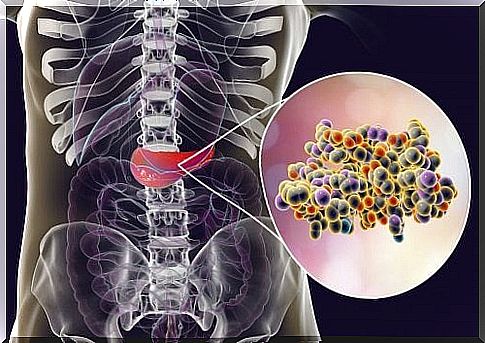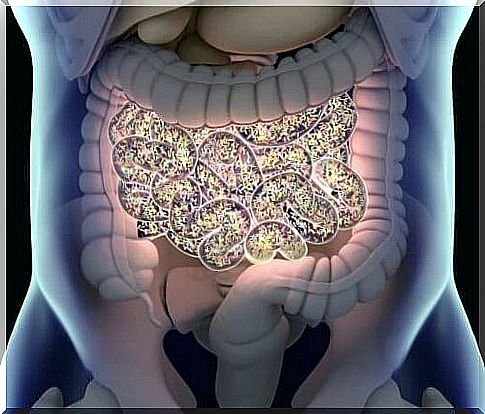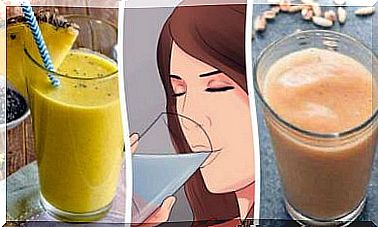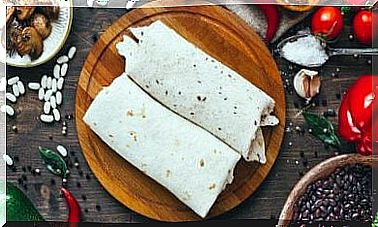Obesity Sweeteners: Myth Or Reality?

The word “sweetener” refers to any substance capable of producing a sweet taste. In this article, we’re going to focus our attention on the types that don’t contain calories. Are these sweeteners good allies against obesity?
Throughout history, the population has always had an indisputable preference for sweet foods. However, in the 18th century, sugar was discovered to be harmful. At the same time, the stereotype of beauty shifted to a slimmer body.
Both circumstances led, at the end of the 19th century, to the creation of the first no-calorie sweetener. Thus, the much appreciated sweet taste seemed to be guaranteed without harm to the health of consumers. But how true is this?
Sweeteners are suitable for human consumption
Sweeteners have proven to be safe substances and suitable for human consumption. However, it is essential to respect the maximum doses established by official bodies.
Its benefits in preventing, treating and controlling overweight and obesity, however, have been questioned in several studies.
More specifically, its actions on insulin, satiety, the feeling of reward, the intestinal microbiota, adipocytes, among others, were studied. All of these are involved in the origin of obesity.

Are sweeteners beneficial against obesity?
Scientific evidence does not support the use of sweeteners against obesity. Below, we’ll share the reasons that make them ineffective:
Action of sweeteners on insulin release
Insulin is a hormone released by the pancreas and its purpose is to remove excess glucose from the blood. To do this, it transports glucose to glycogen and body fat stores. Until now, it was believed that no-calorie sweeteners were not able to stimulate their release. While this is true, there are caveats.
This indirect effect is due to its ability to accelerate gastric emptying and increase intestinal absorption. Since these are non-calorie substances, this shouldn’t be an inconvenience.
However, when sweeteners are added to foods that have calories (juices, biscuits, cakes, dairy products, etc.), they make both conditions ideal for generating excess blood glucose and, consequently, a peak of insulin.

Instability of glucose levels implies repeated stimulation of the pancreas to produce insulin. This will trigger what is known as “insulin resistance” and lead to an increased risk of diabetes mellitus, overweight and obesity.
Sweeteners and energy balance
The concept of energy balance refers to the relationship between the calories we consume and expend. A positive energy balance means that consumption is greater than expenditure, and vice versa.
Despite their low calorie content, sweeteners predispose to a positive energy balance. This is due to the fact that:
- Increase appetite.
- Offer a lesser feeling of satiety.
- Its sweet taste is counterproductive. Repeated exposure to a flavor increases your dependence. If we take into account that natural foods cannot reach their level of sweetness, the preference of their consumers for artificial foods is clear. These usually contain a multitude of empty calories.
- The idea that foods containing them “do not make you fat” increases their consumption. The end result will be a higher consumption than if we had preferred a sweet food in its original form.
- They reduce the thermic effect of food. The concept refers to the amount of calories expended in the digestion, absorption and metabolism of food. Its reduction leads to a decrease in energy expenditure. That’s why the risk of causing a positive energy balance is greater.
- They are not able to activate reward systems. This is the reason why those who consume sweeteners need to ingest food continuously in a relentless pursuit of pleasure.
Effect of sweeteners on the intestinal microbiota
Gut microbiota refers to the set of bacteria that live in our gut in a symbiotic relationship (mutual benefit). Although his training was completed at the age of two, it can be modified throughout life due to several factors. Food is one of them.
Obese people have a characteristic microbiota that favors the state of obesity. Today, we know that sweeteners favor the development of this microbiota.

Learn more: Out of Control Intestinal Bacteria
Action of sweeteners on adipocytes
The role of sweeteners on the size and number of adipocytes – fat cells – is variable. This is because it depends as much on the characteristics of the sweetener as on the consumer. That is why the scientific evidence does not allow us to draw conclusions on this subject.
According to all the above, we can say that sweeteners are not good allies in controlling overweight and obesity.









